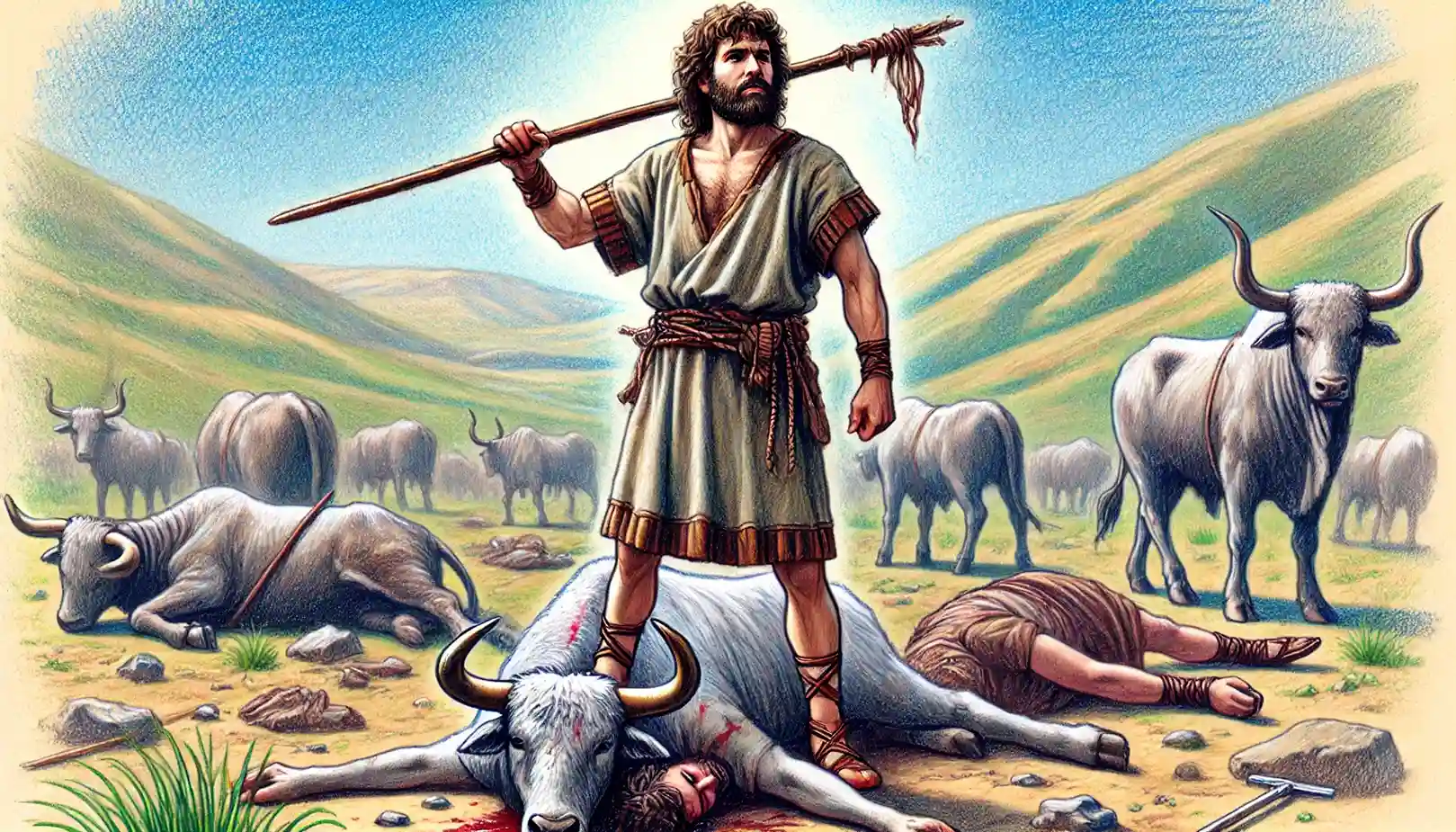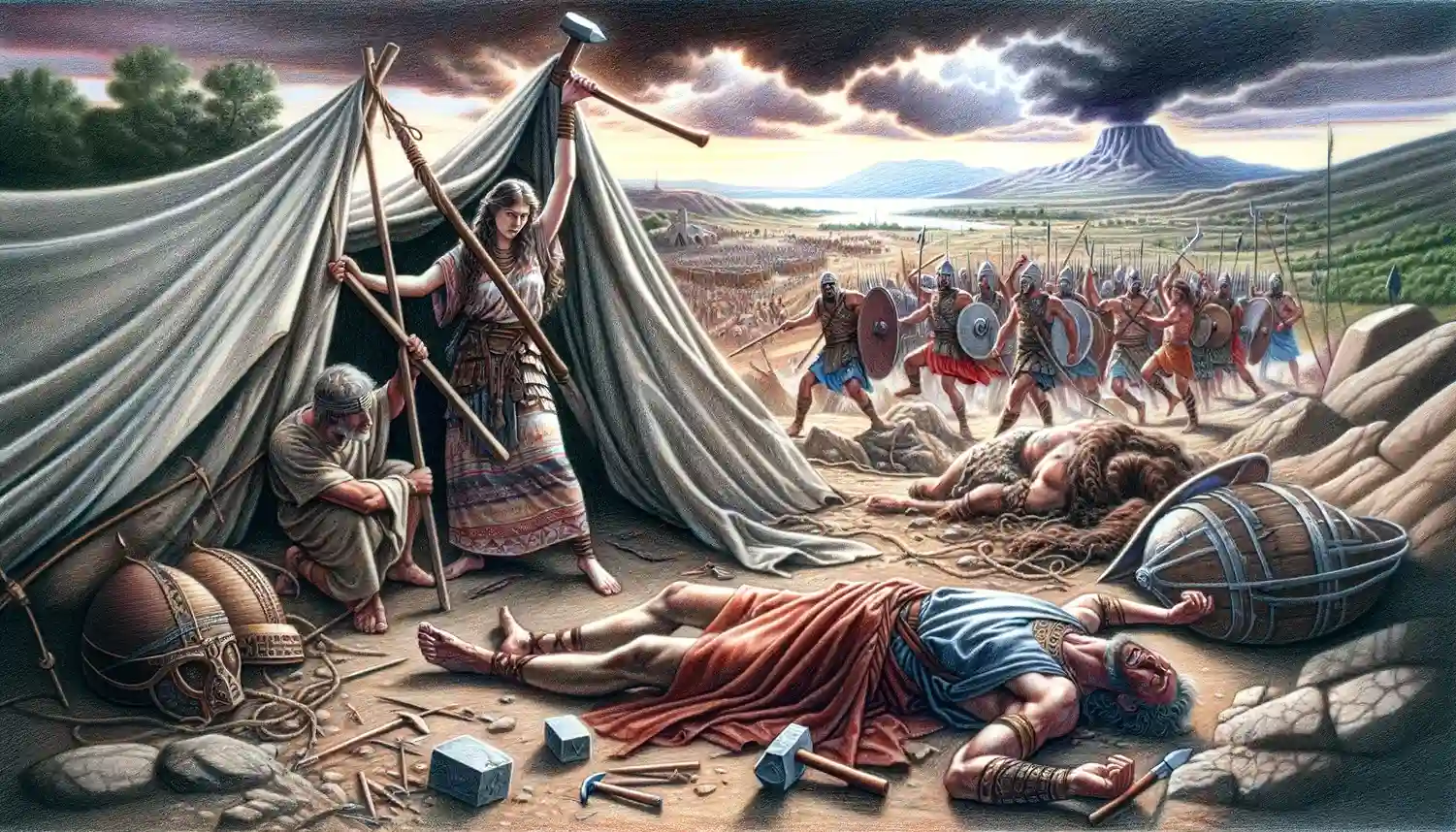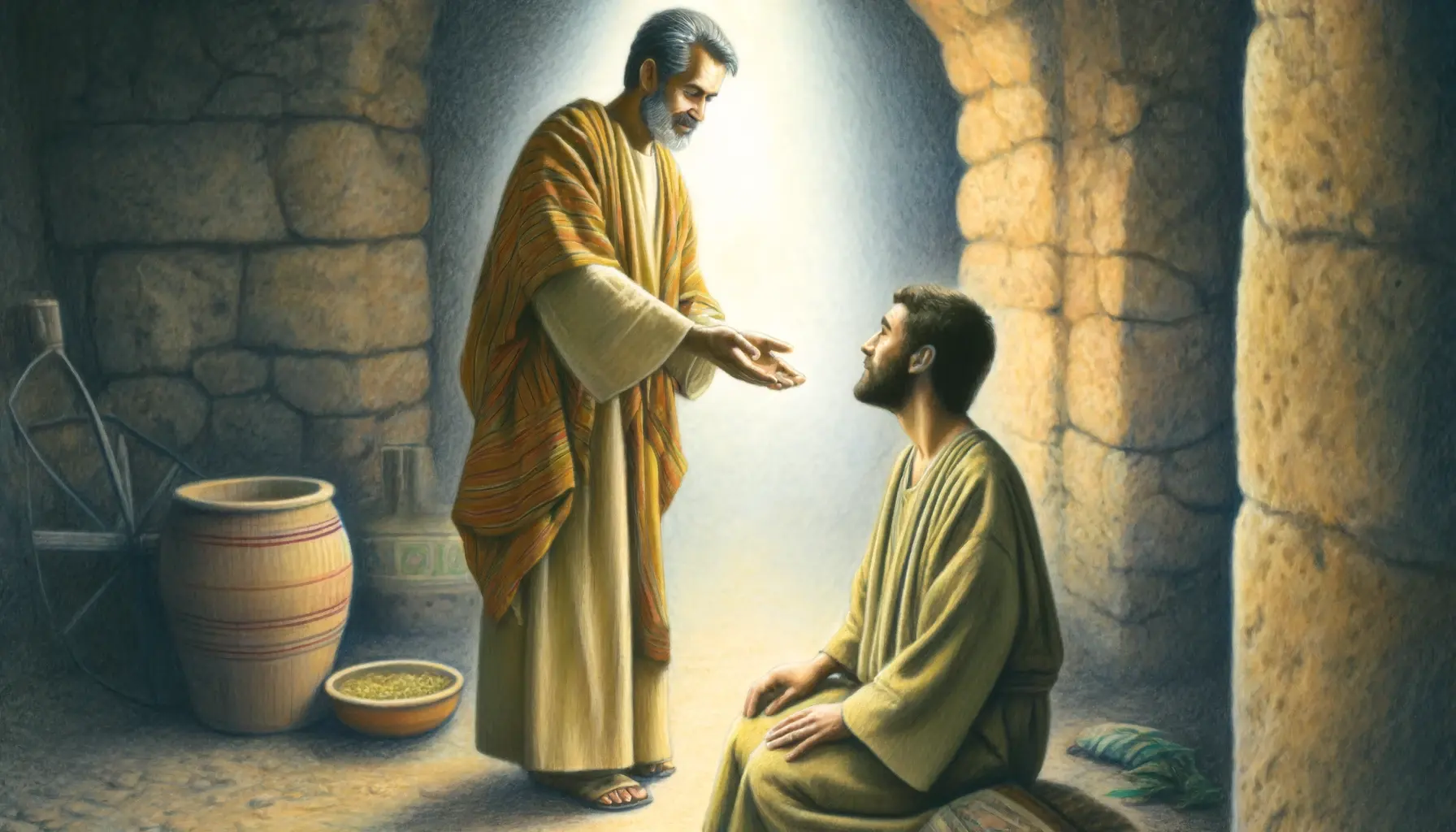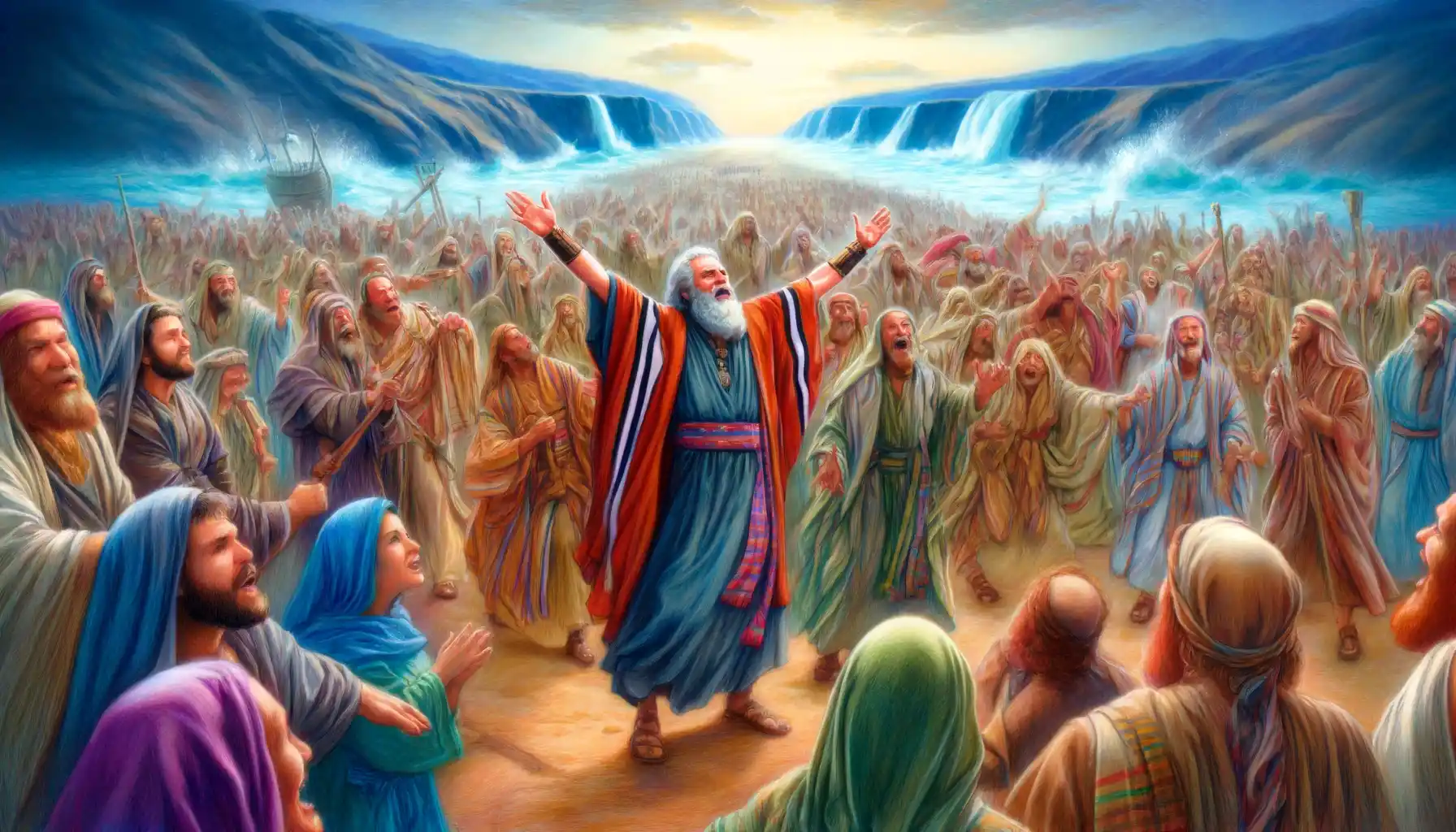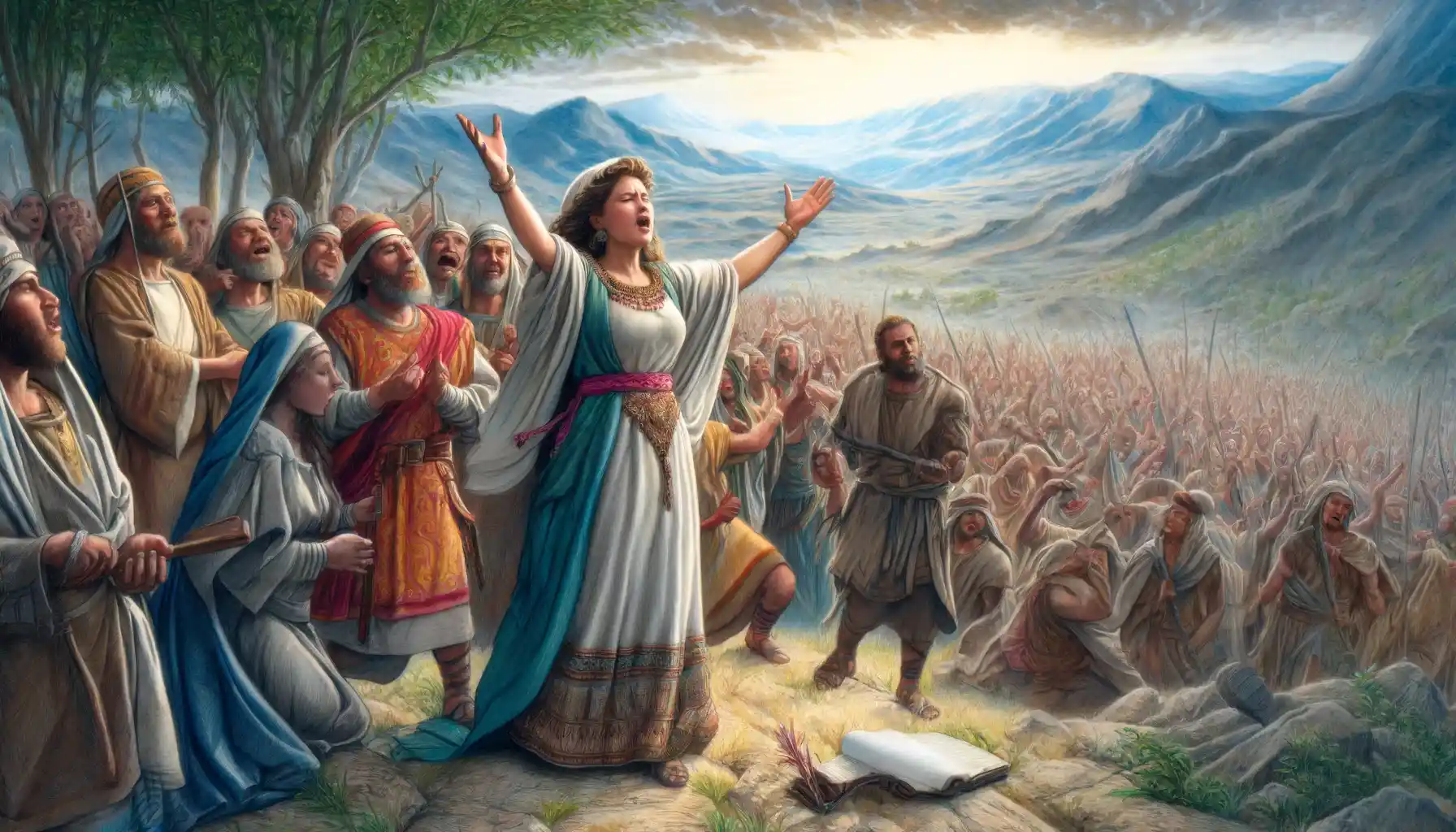Elizabeth, a descendant of Aaron and the wife of Zechariah, is notable for her righteousness and her miraculous conception of John the Baptist in her old age. Her story highlights themes of faith, divine intervention, and prophetic fulfillment.
Shamgar, the third judge of Israel, delivered the nation from the Philistines by killing 600 of them with an ox goad, showcasing God’s ability to achieve great victories through seemingly ordinary means.
The defeat of Sisera, recounted in Judges 4-5, highlights Israel’s deliverance from Canaanite oppression through the leadership of Deborah and Barak and the decisive act of Jael, resulting in a significant victory and peace for Israel.
The story of the Tower of Babel explains the origins of multiple languages and the dispersion of peoples across the world. It serves as a narrative on human pride and the limits of human ambition, as well as the divine prerogative to intervene in human affairs.
The shipwreck of Paul is not just a tale of survival but a testament to Paul’s faith and God’s providence, ensuring that Paul’s missionary journey continued despite seemingly insurmountable odds.
Ananias of Damascus, conversion of Saul, Acts 9, early Christianity, Holy Spirit, baptism, divine intervention, obedience, transformation, Christian ministry, faith and trust, spiritual rebirth, early church history, theological significance
“The Song of Moses,” celebrated in Exodus 15:1-18, is more than a historical recount; it is a theological affirmation of faith in the God who saves and protects, serving as a powerful reminder of the Israelites’ collective identity, formed and sustained by divine acts of salvation, and its enduring presence in religious liturgy underscores its importance as a source of spiritual inspiration and as a doctrinal cornerstone in understanding the nature of God as both protector and liberator.
Miriam’s life and actions encapsulate the trials and triumphs faced by the Israelites during their formative years; as a prophetess and leader, her story contributes significantly to our understanding of the complexities of biblical leadership, the role of women in ancient Israel, and the enduring power of faith and prophecy, inviting reflection on the balance between authority and humility, and the importance of both challenging and supporting communal leadership.
“The Song of Deborah” serves multiple functions: it is a record of historical events, a theological commentary, a piece of poetic art, and a moral exhortation, encapsulating the interplay between human agency and divine will, and highlighting the complexities of faith, leadership, and community in ancient Israel.
Deborah’s role in biblical history is not only a testament to her own strength and wisdom, but it also highlights the themes of faith, obedience, and God’s providential care for Israel, encouraging reflection on the nature of God’s governance, the role of women in society, and the dynamics of faith and leadership.


